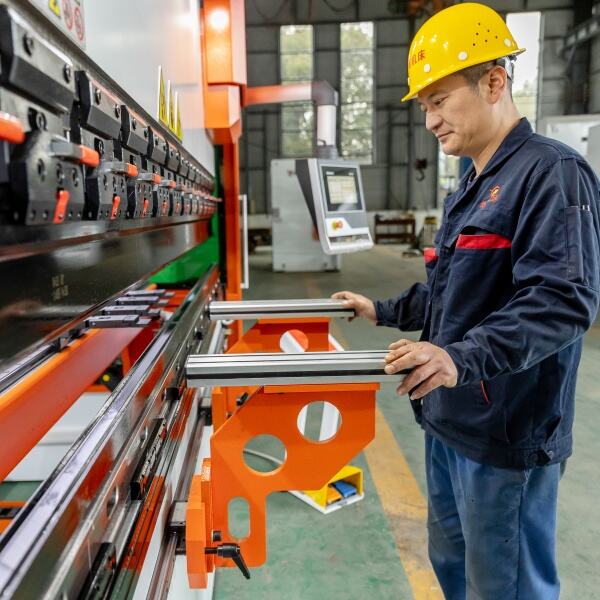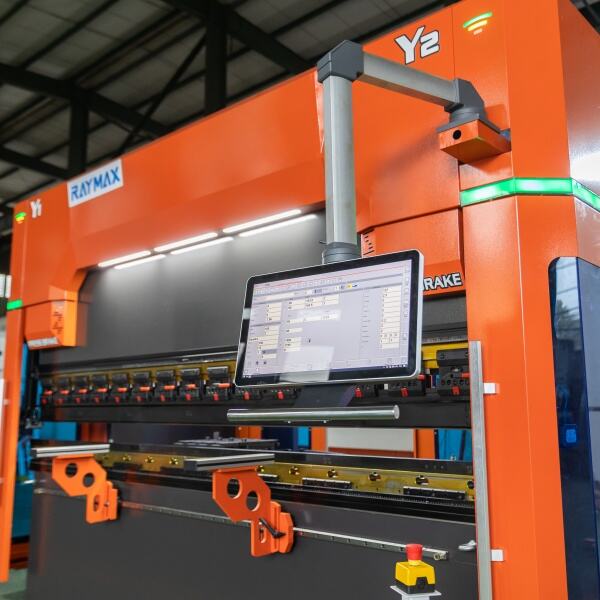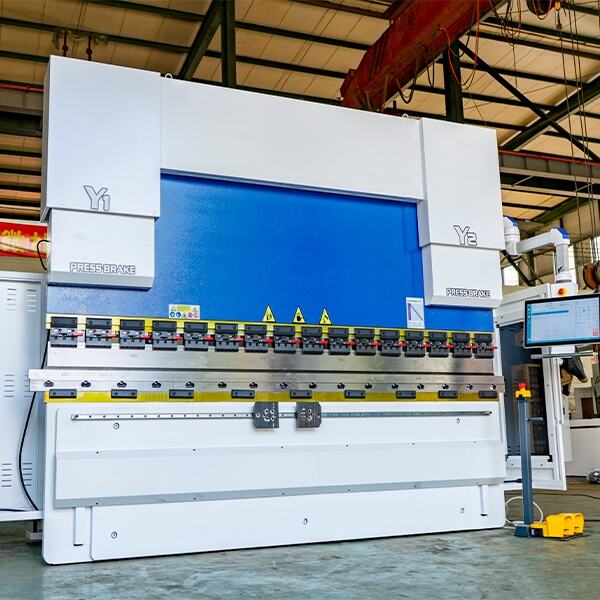
A CNC press brake is a computer-controlled metal forming machine designed to bend, fold, and shape metal sheets and profiles with high precision and efficiency. Unlike manual or mechanical press brakes— which rely on human operation or fixed mechanical drives— a CNC press brake uses a numerical control (CNC) system to automate bending processes, ensuring consistent results even for complex or high-volume production tasks. At RAYMAX, our CNC press brakes are engineered to meet the demands of industries ranging from automotive to aviation, leveraging 22 years of manufacturing expertise and advanced technology to deliver reliable performance. At its core, a CNC press brake consists of four key components: the frame (providing structural stability), the hydraulic or mechanical drive system (supplying force for bending), the bending tooling (punch and die, which shape the metal), and the CNC control system (managing all operational parameters). The CNC system is the “brain” of the machine, allowing operators to input critical data such as bending angle, sheet thickness, material type, and bending sequence. This data is translated into precise movements of the machine’s ram (which holds the punch) and bed (which holds the die), ensuring the metal is bent to the exact specifications required. For example, when bending a stainless steel sheet for a petrochemical pipeline support, the CNC system adjusts the ram’s speed and pressure based on the sheet’s thickness (e.g., 10mm) and material properties (e.g., tensile strength of 500MPa), preventing over-bending or material damage. One of the defining features of a CNC press brake is its ability to automate repetitive tasks and minimize human error. Unlike manual press brakes, where operators must manually adjust tooling and monitor each bend, a CNC press brake can store hundreds of bending programs, allowing for quick setup between batches. This is particularly valuable for industries like automotive, where a single production line may need to bend multiple components (e.g., door frames, chassis parts) with different specifications. For instance, a car manufacturer using our RAYMAX CNC press brake can switch from bending 1.5mm thick aluminum door panels to 3mm thick steel chassis brackets in less than 10 minutes, thanks to the CNC system’s program storage feature. CNC press brakes also offer superior precision compared to traditional models. Our machines achieve a bending accuracy of ±0.1mm, which is critical for industries like aviation that require strict tolerances for safety-critical parts. For example, when manufacturing aluminum alloy sheets for aircraft wings, even a small deviation in bending angle (e.g., 0.5 degrees) could compromise the part’s structural integrity; our CNC press brake’s real-time feedback system— which uses sensors to monitor the ram’s position— adjusts parameters dynamically to maintain accuracy. Another key advantage of a CNC press brake is its versatility. It can handle a wide range of metal materials, including carbon steel, stainless steel, aluminum, copper, and alloys, as well as varying sheet thicknesses (from 0.5mm to 30mm, depending on the machine’s capacity). This makes it suitable for diverse applications: from bending thin metal sheets for electrical enclosures in light industry to forming thick steel plates for ship hulls in the maritime sector. At RAYMAX, our CNC press brakes are also customizable to meet specific industry needs— for example, adding automatic feeding systems for high-volume production or corrosion-resistant coatings for use in coastal power plants. In summary, a CNC press brake is a transformative tool for metal processing, combining automation, precision, and versatility to enhance productivity and quality. Whether for small-batch precision parts or large-scale mass production, it addresses the limitations of traditional press brakes, making it an essential piece of equipment for modern industries. At RAYMAX, our CNC press brakes build on this foundation, integrating advanced technology (developed through university partnerships) and strict quality control to deliver solutions that meet the unique needs of our 4000+ global clients.


